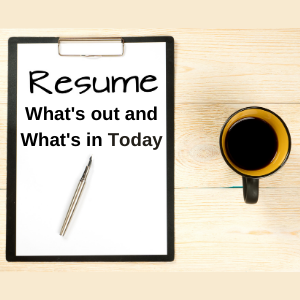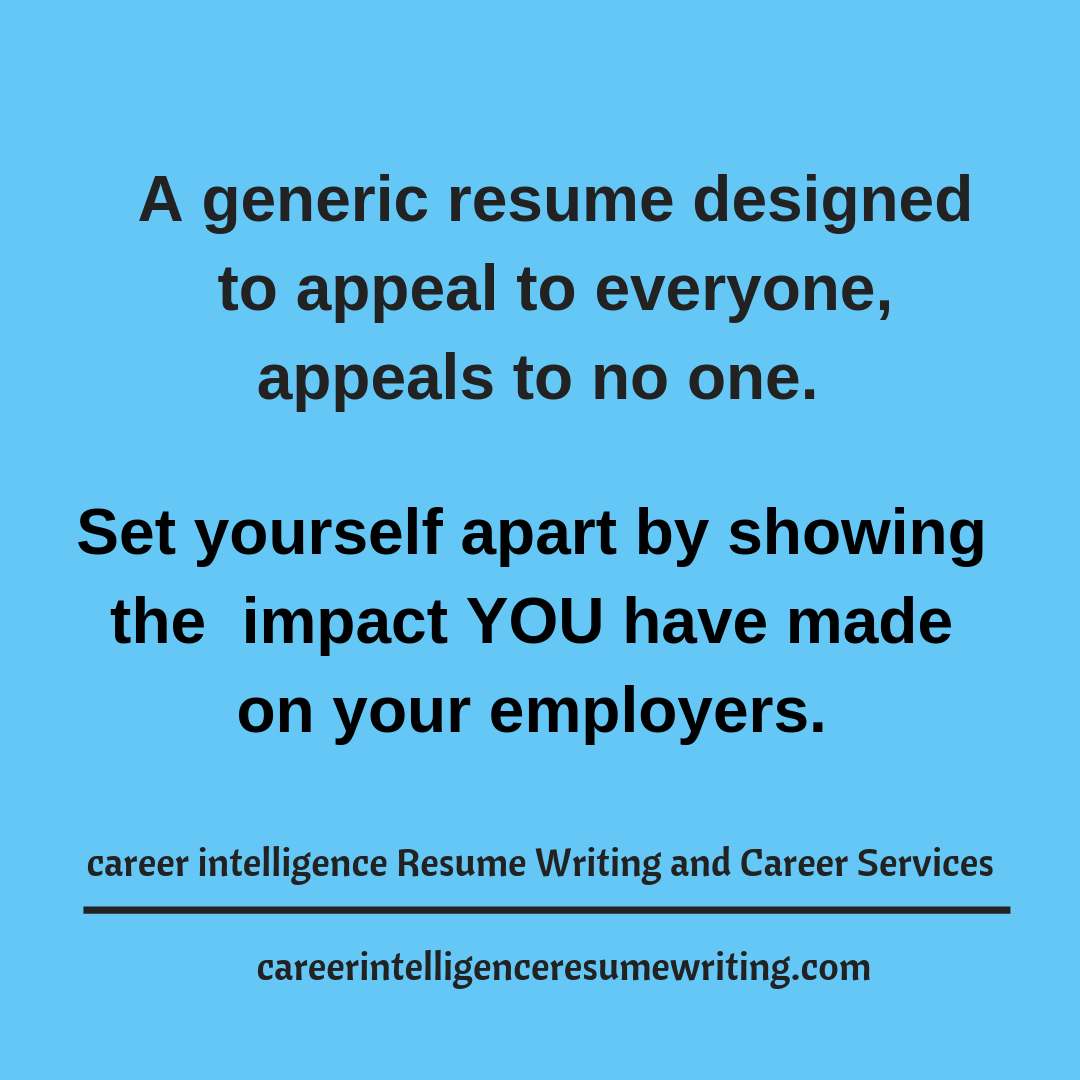How To Make Sure Your Resume Is ATS Friendly
Applicant tracking software systems or ATS systems electronically handle many recruitment and hiring needs. One applicant tracking system function is parsing each job application and resume looking for relevant keywords, skills, years of experience, former employers, job titles, colleges and universities, etc., based on employer criteria and store that information in a database.
To employers, who often get hundreds of applications for every position advertised on a job board, applicant tracking software is a boon. On the other hand, many job seekers refer to them as the “black hole.”
When I was working as a recruiter, at least 80% of the job seekers who responded to my job posting weren’t remotely qualified for the job. So before blaming the black hole, make sure you are a qualified candidate: your work experience matches most of the job opening’s requirements. Not necessarily all, but most.
It’s also essential to ensure that your resume is ATS-friendly.
Following are some of the most often asked questions about applicant tracking software systems. The answers won’t help you get contacted if you’re not a qualified candidate. They will help you create an ATS friendly resume.
Most Popular “How To” Executive Resume Writing Questions
Crafting a compelling executive resume that gets results isn’t easy. Many executives and professionals turn to an executive resume writing service. They spend time researching who is the best executive resume writer.
Other professionals looking for an executive position decide to tackle executive resume writing themselves. When talking to a professional resume writer, these are some of the “how-to” questions people ask.
12 Often Asked Executive Resume Writing Questions
#1 What do employers look for in a resume?
Employers are looking for people to solve their problems. A hiring manager wants to know what you can do for them.
People in similar positions at similar companies do similar things. What differentiates candidates from one another is the impact they have had on their employer(s).
More specifically, a recruiter or hiring manager wants to see how you saved time, cut costs, improved productivity, generated revenue, etc.
January 2021 Is Here. Will Your Job Search Be Successful?
Welcome to 2021!
2020 has been extremely challenging. Most of us have had our professional, and personal lives turned upside down. Many people found looking for a new job frustrating, exhausting, and disheartening.
Finally, 2020 has been kicked to the curb. The holidays are behind us, and a brand-new year, full of possibilities, stretches before us.
If your goal is to get a new job in 2021, it’s time to get going. Don’t wait for tomorrow. Start today.
Get Your Career Marketing Tools Ready
#1 Make sure your resume is recruiter and employer ready. Your resume is often how hiring managers meet you. A boring list of duties and responsibilities is unlikely to motivate anyone to contact you.
People in similar positions do similar things. The best way to differentiate yourself is by demonstrating your value. And the way to do that is by creating a results-driven resume in a modern, easy-to-scan format.
Five Resume Elements That Should Be Forgotten
You’re probably familiar with the phrase “everything old is new again.” But when it comes to resumes, everything old is not new again. It’s just old.
Resumes have changed a lot over the last 15 years. They’ve morphed from boring employment histories to compelling marketing documents designed to sell you — the candidate — to recruiters and employers. While some basic components like professional experience and education remain, there are other elements that make your resume and, by default, you look dated.
1. Objective Statement
Although objective statements have been passé for years, I still see them on resumes. One reason they fell out of fashion is that they were all basically the same. Every candidate was looking for a great company, where they worked with awesome colleagues, and had room to grow. Boring. Worse, objective statements didn’t address what every employer wants to know “WIIFM?” (what’s in it for me?). Scrap the objective statement and replace it with a summary that demonstrates your value.
Easy Ways To Make A Better First Impression
You’ve heard the saying “you never get a second chance to make a first impression.” That’s particularly true during your job search
Certainly, having the right skills, experience, and, in some cases, education is essential. However, recruiters and employers may not contact you for an interview if you don’t make a good first impression.
At least good enough to make them want to learn more.
Recruiters and employers meet you different ways. It might be when they receive your resume. It might be when they view your profile on LinkedIn. It might be when they see something on social media. Since you have no way of knowing, it’s important to cover all fronts.
If you’ve been actively recruited for your last several positions, having a boring, task-focused resume has probably worked for you. It may have been not much more than a formality.
When you’re the one approaching recruiters and employers, however, replacing your boring task-focused resume with a results driven marketing tool and developing a robust, optimized LinkedIn profile will make you more marketable.
Both of those take time, effort, and maybe even hiring a professional writer. That said, there are a few fairly simple, often quick, things you can do to make a better first impression.
10 Strategies That Will Boost Your Job Search Success
These are extraordinarily difficult times. Unemployment is climbing. People on furlough wonder if they’ll be returning to work. Shutdowns across the country make it challenging to look for a job.
Despite everything, this is not the time to stop looking for a new job. The job market has changed dramatically, but jobs are still out there. Employers are hiring. There are steps you can take to move your job search forward.
Here are 10 job search strategies that work. But reading this list isn’t enough. You need to act. You can’t do all of them today, but you can get started.
#1 Make a list of your target employers, companies where you would most like to work. Set up Google alerts to help you follow them in the news. Start contacting family, friends, former colleagues, etc. to see if they know anyone who works for one, or more, of your top employers.
Make Sure Your Executive Resume Demonstrates Your Value
If you’re writing your own executive resume, it can be tempting to include everything you’ve done over the last 20 years. Or longer. A long, boring, job history is the perfect way to make sure no one contacts you.
If you want to get the attention of recruiters and hiring managers, it’s essential to demonstrate YOUR value.
Immediately.
Highlight your achievements. Recruiters and hiring managers want to know about the impact you’ve had on your employers. They want to see times you’ve saved time, improved productivity, cut costs, generated revenue, etc. Present your resume in a modern, easy-to-scan format. Focus on positions that are relevant to employers.
7 Ways To Increase Your Chances Of Getting A New Job
Most of us wouldn’t buy a home or a car or even a new phone without some planning. Before a large purchase we’d check our credit report and research prices. Depending on the purchase, we might read reviews of realtors or retailers. We want to be prepared when we find the perfect whatever.
Yet, many people jump into a job search, a process that could change their life, with no preparation.
They see a few interesting job posts and decide it’s time for a change.
Often, they don’t have their resume or LinkedIn profile recruiter ready. They haven’t researched the salary range for the position they seek. They may not even have a clear understanding of what they want in a new position.
Big mistake.
A job search requires as much preparation as any other big move. Here are 7 steps you need to take before you begin your job search.
5 Reasons Why You Didn’t Get The Job
Even if we don’t want the job, most of us want to get the offer. When you actually do want the job, getting a “pass” can be downright devastating. I’ve been there too.
Sometimes knowing the reason, you weren’t hired is easy. Maybe you didn’t have most of the “requirements” but you decided to apply anyway. Perhaps you didn’t click with the hiring manager. As soon as you left the interview your gut told you that you wouldn’t be moving forward.
Other times, you leave an interview feeling great and are stunned to receive a “we went another way” letter in the mail. You go over every interaction over and over trying to figure out what went wrong.
3 Executive Resume Must Haves
To be effective an executive resume needs to convey value. Right away. Early in your career you may have been able to get by with a basic employment history. However, once you reach the executive level, or are targeting those rolls, demonstrating the impact you’ve had on your employers is critical.
Unfortunately, most of the resumes that come across the desks of recruiters and hiring managers are boring lists of duties and responsibilities. Nothing to motivate the reader to set up an interview.
The good news, is that if your executive resume does demonstrate value and engage the reader you will stand out from the pile of other candidates. In a good way.
3 Things Your Resume Must Include
Quantifiable Results
Employers expect senior professionals to do more than manage a team, run a department, or be responsible for a sales region. They want to know what you’ve done that’s had an impact on the business.
The best way to demonstrate value is show how you’ve made money, saved money, saved time, anything that’s had a positive effect. While quantifying results may be easier in some professions, like sales, if you take the time to “dig deep” you can come up with results.










